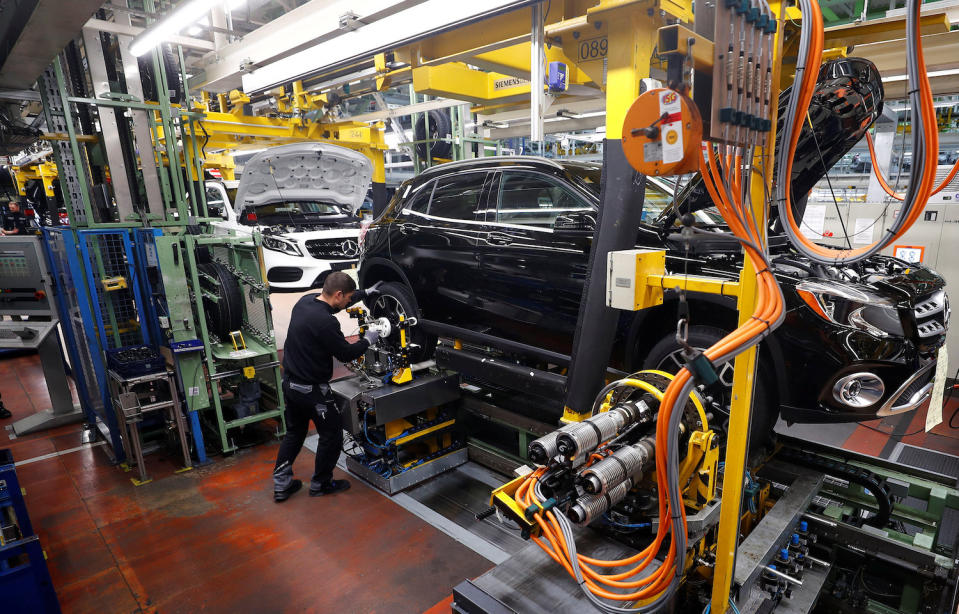A hard Brexit could kill 100,000 jobs in Germany

Germany would bear the brunt of global job losses should the UK leave the European Union without a trade deal in place, according to a new study.
Economists at the Leibniz Institute for Economic Research Halle (IWH) and the Martin Luther University Halle-Wittenberg calculated that roughly 600,000 jobs globally could be affected by a no-deal Brexit. Germany could expect some 100,000 job losses, with China and France coming second and third with nearly 60,000 and 50,000 jobs affected, respectively.
The IWH focused on job losses after a no-deal Brexit as a result of a drop in exports to the UK. The study based its calculations on data from the World Input Output Database (WIOD) and the assumption that demand from the UK for EU goods and services would plunge by a quarter following a hard Brexit, because of higher prices based on new tariffs.
The study said the German car industry would be the worst hit, with an estimated 15,000 positions lost across production and sales, concentrated in places like Volkswagen’s home turf in Wolfsburg and BMW’s in Dingolfing, Lower Bavaria. Germany’s tech heartlands, home to companies like Siemens, would also suffer.
German automotive bosses have warned repeatedly over the past two years that Brexit will make the complex “just-in-time” supply chains between the two countries even more complicated and increase costs. A no-deal Brexit would have even more serious consequences. Daimler CEO Dieter Zetsche warned in October that a hard Brexit was “highly worrying” for the carmaker and that Daimler could see an immediate slowdown in demand for Mercedes-Benz cars and lorries in Britain.
After the British parliament rejected the Brexit withdrawal agreement in January, German carmakers urged the British government not to leave the bloc without a trade deal. BMW, which makes more than half of its Minis in Oxford, and Volkswagen both said the UK needed to act to ensure tariff-free trade after Brexit.
“The consequences of a ‘no deal’ would be fatal,” German auto industry association (VDA) said. “Without an orderly and practical solution for business, jobs in the car industry, particularly on the British side, are on the line.”
“A hard Brexit would stir up global value chains,” said study author and IWH vice president and chief executive Oliver Holtemöller, noting that it would cause a significant loss of prosperity in the EU. Job losses would not be the only fallout — companies could also put workers on part-time contracts, so as not to lose skilled people in economies, like Germany, that already struggle to fill skilled positions.
READ MORE: The industries most at risk from a no-deal Brexit

 Yahoo Finance
Yahoo Finance 